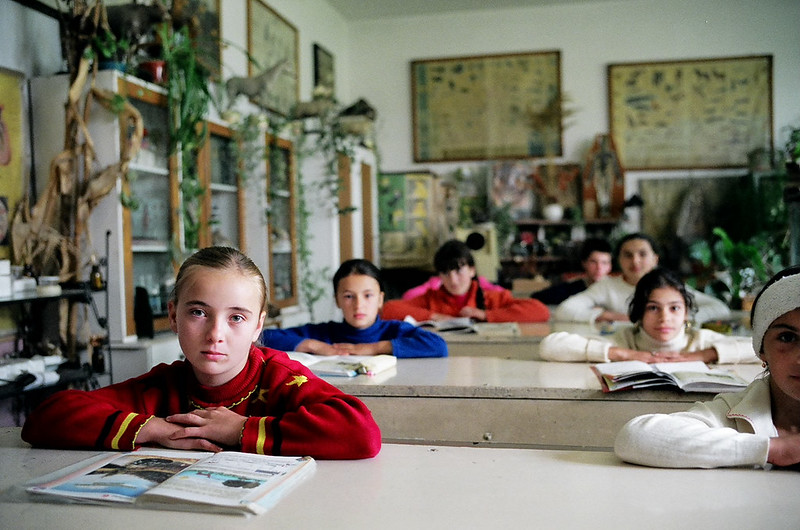Women’s Rights in Romania
 Romania has had a turbulent past with its role as a close ally of the Soviet Union, and its own revolution which led to the collapse of communism in 1989. As a new era dawned upon the country, the democratization process began. Over the decades, efforts toward gender equality have improved women’s rights in Romania but issues still exist, especially among marginalized groups like the Romani.
Romania has had a turbulent past with its role as a close ally of the Soviet Union, and its own revolution which led to the collapse of communism in 1989. As a new era dawned upon the country, the democratization process began. Over the decades, efforts toward gender equality have improved women’s rights in Romania but issues still exist, especially among marginalized groups like the Romani.
The Economy and Unemployment
Despite increased prospects and economic development, progress was plodding, and the 2009 financial crisis deepened issues for the Romanian government. This resulted in legislation concerning women’s rights facing relegation to the backbench as politicians scrambled to rescue the country from financial catastrophe.
While there have been continuous changes in legislative provisions, the dissolution of the National Agency for Equal Opportunities between women and men in July 2010 exposed the inequalities between men and women within the professional sector. The agency had been the national gender equality machine, committed to improving the position of women within the workforce. Austerity measures because of the 2009 financial crisis led to its dissolution.
Between 2008 and 2012, the increase in long-term unemployment was higher for women by 5%.
Minority Discrimination
The education rates drop among girls in the Romani community, an ethnic minority who make up 8.32% of Romania’s population. It is important to note that Romani women are not the same as Romanians- the Romani are an Indo-Aryan ethnic group who traditionally lived a nomadic lifestyle.
Education highlights the inequality between provisions available with only 68% of girls receiving secondary education in urban cities, dropping to a staggering 42% in rural areas. Roma boys spend on average, 6.71 years in education while Roma girls spend around 5.66 years. When compared with their non-Roma counterparts who spent 10.95 and 10.7 years respectively, the difference is apparent.
It is common knowledge that Romani women suffer from increased discrimination due to prejudice against the ethnic minority group. Almost a quarter of Romani women in Romania have had no formal education and most of the group have stated that they are discriminated against by employers. As much as 39% of Romani women had not earned any income in the last year and 54% worked informally in jobs that provided no benefits or work agreements.
Gender-Based Violence
There have been increased calls on the Romanian government to protect women from the high rates of sex trafficking and domestic violence. The country has been listed by the U.N. as one of the greatest hotspots for human trafficking.
According to Valentina Rujoiu, a professor at the University of Bucharest’s Faculty of Sociology and Social Assistance, Romania is “stuck in the middle ages” regarding domestic violence. The shame and dishonor surrounding victims of domestic abuse often prevent them from speaking out. Rujoiu also argues that the laws in Romania are not working. On average, it takes 33 days for a restraining order to come into effect, and for many, this is too late.
In a report released by the U.N.’s Human Rights Office, the working group recommended that “the [Romanian] government should also take all the necessary measures to prevent early marriage and drop out of schoolgirls and to ensure human rights-based sexuality education in schools”.
The report also highlighted the issue of forced marriage and teen pregnancies. There is little access to prenatal care and the breastfeeding rate is three times lower than in the European Union (EU), further emphasizing the ongoing problem of early years development.
Hope and Empowerment
Smaller NGOs are operating in Romania to combat gender inequality. Centrul Filia is a feminist NGO from Bucharest, active in the field of gender equality research. The organization aims to build a society in Romania whereby women’s rights and diverse needs are respected and equal opportunities are available to all.
The organization’s direct community work, advocacy activism and research analysis help to build a more accurate image of gender inequality in Romania, as well as supporting women through increasing public awareness on reproductive and sexual rights. Its work with the Romanian government in improving the legislative framework and effective implementation of public policies has also transformed the organization into a powerful pressure group.
According to the U.N., there is a need for more improvements to empower women in Romania, ensuring that they can reach their full potential within professional and personal spheres. Currently, ongoing efforts by NGOs similar to Centrul Filia represent positive steps in the right direction to improve women’s rights in Romania.
– Maryam Rana
Photo: Flickr
